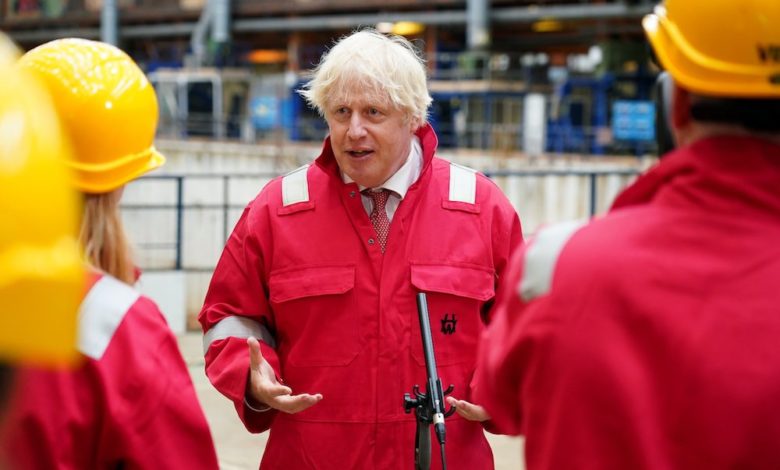UK to form maritime committee to wade through ‘muddle’ of policies left by the Boris Johnson administration

During his three-year tenure as prime minister, Boris Johnson was regularly pictured wearing a construction hat and a high-vis jacket promising to re-energise the UK’s ports and shipyards. His maritime promises were myriad, however today his ex-parliamentary colleagues have hit out at the muddled thinking behind many of the initiatives launched in recent years.
The government under Rishi Sunk said today it will carry out a wide-ranging review of its policies to modernise the UK’s maritime sector, following a number of recommendations by the parliamentary transport committee on cutting emissions, enabling new technology and investing in skilling up workers.
Among the headline recommendations of the committee’s report into the government’s 2019 Maritime 2050 strategy, it called on the Department for Transport (DfT) to work with industry to review and streamline the “muddle” of 184 recommendations it set itself four years ago. In its response, DfT said it will establish a new cross-departmental maritime council to help it and industry review progress and agree how best to prioritise.
Ministers said an updated Clean Maritime Plan to decarbonise the sector will be published later this year, with “indicative targets” and a “road map” for how to achieve zero greenhouse gas emissions by 2050. In its report, the cross-party committee said DfT’s updated plan should include details of how new regulations will support the use of future fuels and vessel types, giving industry certainty about how to invest.
However, DfT said it was unwilling to commit, beyond 2025, to long-term investment in UK SHORE – a programme of investment in infrastructure projects focused on shore-side electrical charging. The committee called for further state investment as part of the solution needed to make widespread provision of shore-side power viable.
On smart shipping technologies, the committee said DfT should quickly bring in new legislation to facilitate regulation that would enable companies to adopt remote-controlled vessels, and autonomous ships that use sensors to help them navigate and assist crew.
Ministers have now agreed to publish a response to DfT’s the Future of Transport review in the coming weeks, saying its “priority” is to provide “legal certainty to industry”. However, the response said it will not be possible to introduce new legislation within this parliamentary session.
The widespread maritime review also contained recommendations for the maritime workforce as well as the ailing UK ship register, which has shrunk in size by a third between 2009 and 2021.
Transport committee chair Iain Stewart said: “Top of our agenda with this report was urging ministers to bring some order to the muddle of recommendations in its Maritime 2050 strategy.”

Good shot!
One egregious hole in planning is the inability to offer cold ironing, let alone charging, at UK ports.
With luck the long suffering staff of the DoTp and it’s Maritime and Coastguard Agency might be excused from having to parrot Brexity slogans in meetings.